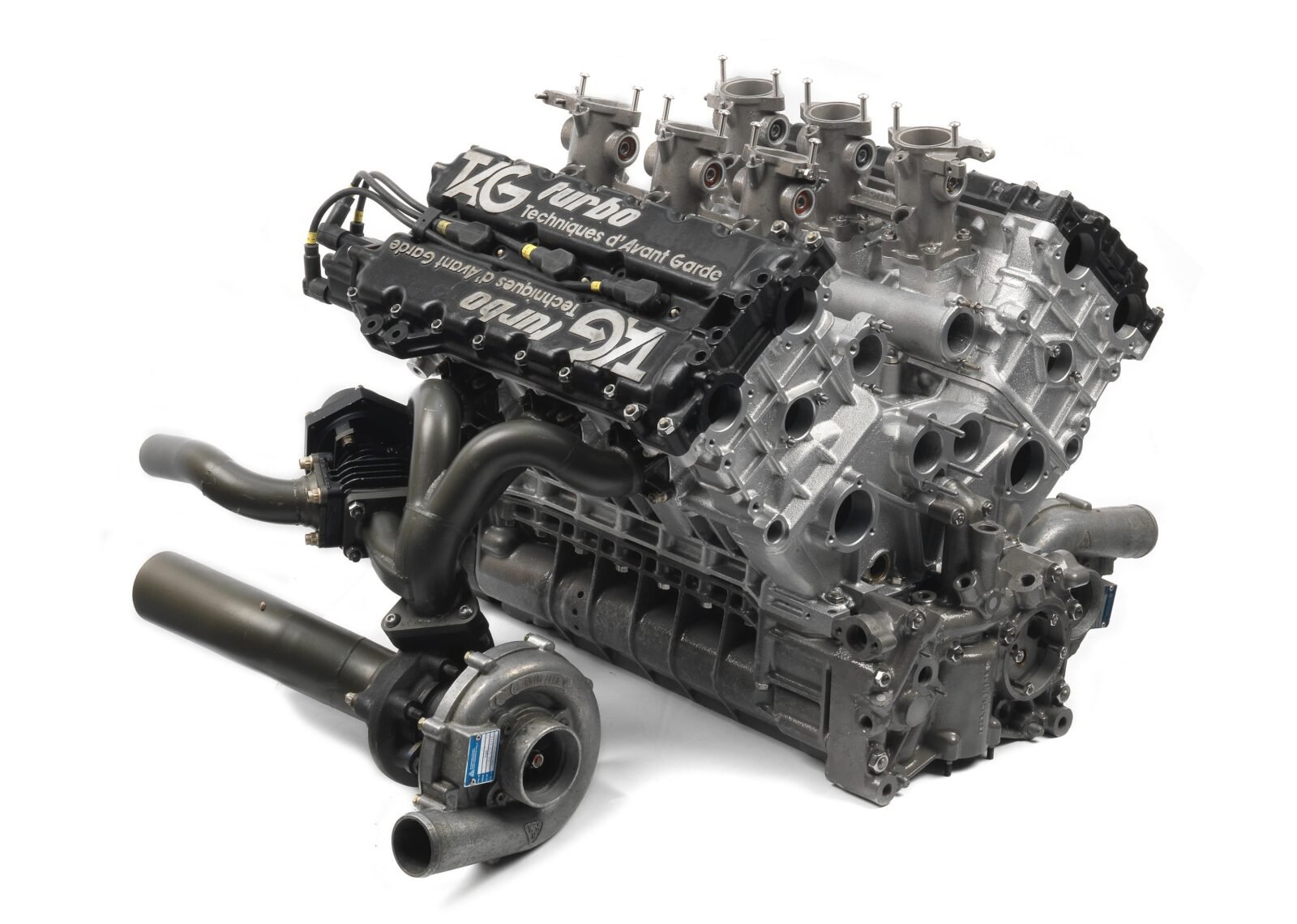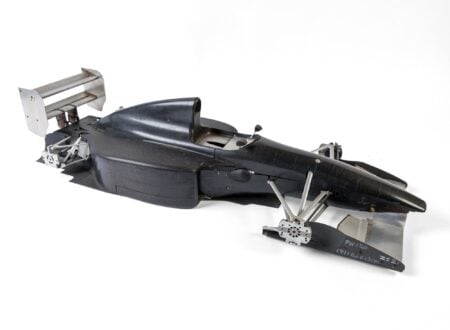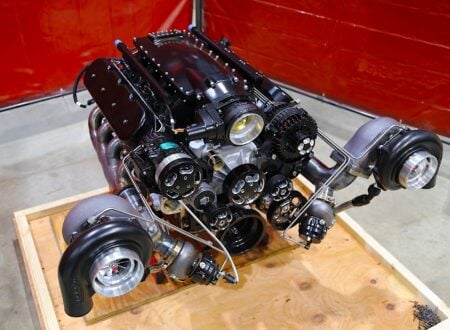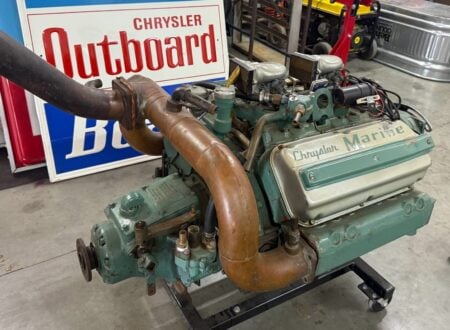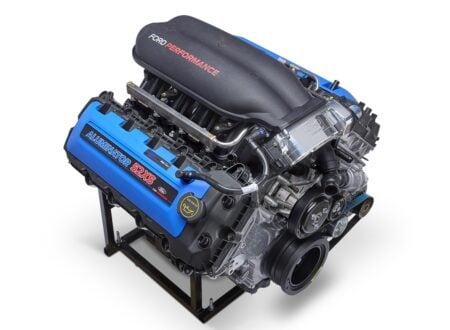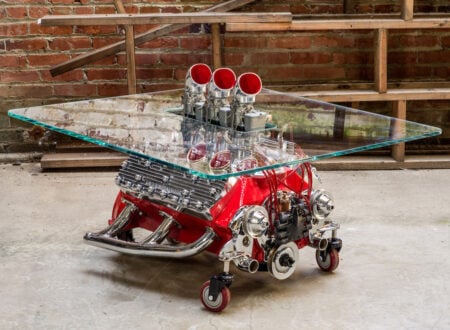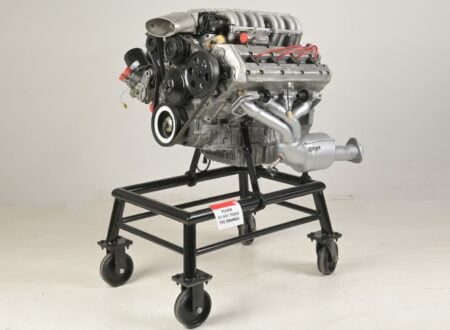This is one of the 40 original examples of the TAG-Porsche TTE PO1 Formula 1 engine, a twin-turbo 1.5 liter V6 that powered McLaren to three Drivers’ Championships, two Constructors’ Championships, and a total of 25 wins from 68 races.
The program between McLaren and Porsche to develop the TTE PO1 engine began as a skunkworks project, funding was provided by Mansour Ojjeh, head of Techniques d’Avant Garde, best-known for TAG-Heuer watches.
Above Video: This is footage of current Formula 1 driver Lando Norris driving Alain Prost’s McLaren MP4/2 at the Sonoma Raceway in California as part of the Velocity Invitational event.
McLaren boss Ron Dennis had approached Porsche at the dawn of Formula 1’s turbo age with a proposal. Dennis is a famously shrewd operator, and he realized that Porsche would be an ideal engine supplier for the team based on the German company’s years of experience in top flight endurance racing, and due to their many years of experience developing reliable, race-winning turbocharged engines.
Porsche was open to the idea, but refused to fund the costly development cycle. Dennis realized that McLaren wouldn’t be able to fund it either, as it would stretch well into the millions of dollars, and so he cunningly poached Mansour Ojjeh of TAG away from the Williams Formula One Team where he had been a key sponsor.
Ojjeh had agreed to fund the project on one key stipulation, that TAG receive top billing on the engine. As a result, the engine was formally named the TAG-Porsche TTE PO1.
When it comes to engine manufacturers developing new power units for use in Formula 1, the vast majority of cases seem to result in abject failure or in results as close to abject failure as to be indistinguishable from it. There are a few exceptions to this, the Ford-Cosworth DFV is certainly one, as is the Honda engine used by McLaren later in the 1980s.
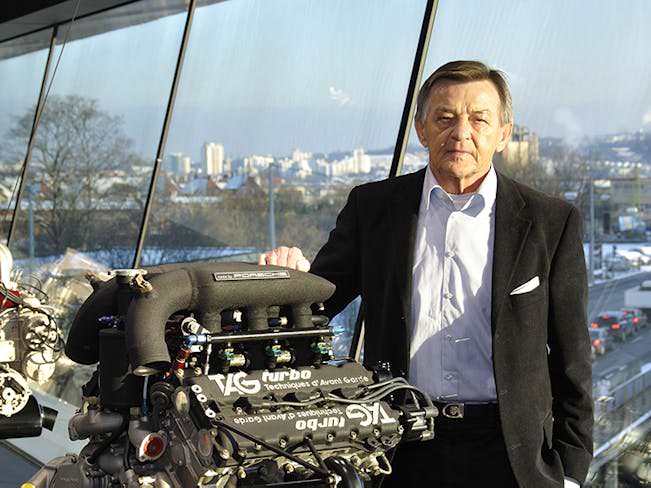

As a result of this it was a major risk for Porsche to attach its name to a project with such an uncertain future. But Porsche had an ace up their sleeve in engineer Hans Mezger, their Chief Engine Designer. Mezger was, for want of a more formal term, a wizard.
Mezger had developed the complex valve train for the Porsche Carrera engine in 1959, he designed the original flat-six Porsche 911 engine, he ran development of the Type 753 flat-eight for the race-winning Porsche 804 Formula 1 car, he led the development of the wildly successful Le Mans-winning Porsche 917 engine, and he was the chief of the turbocharged Porsche 930 engine development program.
Given his prior experience in Formula 1, endurance racing, and turbocharging, he was one of very few engineers on earth who could develop a brand new turbocharged Formula 1 engine from scratch and make it both a race and championship winner. And that’s what he did.
The engine that Mezger and his team at Porsche developed was the TAG-Porsche TTE PO1, a 1.5 liter V6 with a bank angle of 90º, twin turbos, double overhead cams per bank, four valves per cylinder, and a weight of just 145 kgs (320 lbs). Remarkably, despite the engine’s compact dimensions and low weight, it had been designed as a load-bearing chassis member.
At the peak of this engine’s development it was capable of 960 bhp in race tune, and a remarkable 1,060 bhp in qualifying tune. The design proved both reliable and fuel efficient when compared to its rivals, as a result it powered McLaren from late 1983 until 1987, winning five championships (three Drivers’ and two Constructors’ as noted further up).
The TAG-Porsche TTE PO1 F1 Engine Shown Here
The engine you see here is the 29th of the 40 examples produced, it was driven by Alain Prost to a 2nd Place in the 1984 South African Grand Prix, at the Kylami circuit. It would be Prost’s teammate Niki Lauda who would win the race, also driving a TAG-Porsche-powered McLaren MP4/2.
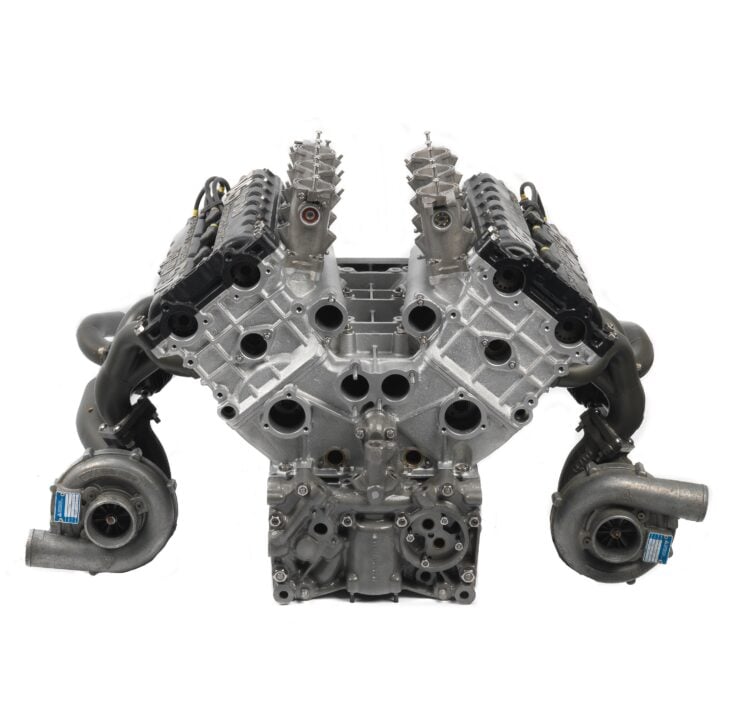

This engine retains both its turbochargers as well as its throttle bodies. Inside the engine is said to still have its crank, pistons, connecting rods, valves, and camshafts – this is unusual as many former race engines are stripped and sold as empty units for display purposes.
It’s now due to cross the auction block with Bonhams on the 12th of July with a price guide of £30,000 – £50,000, or $38,000 – $63,000 USD. If you’d like to read more about it or register to bid you can visit the listing here.
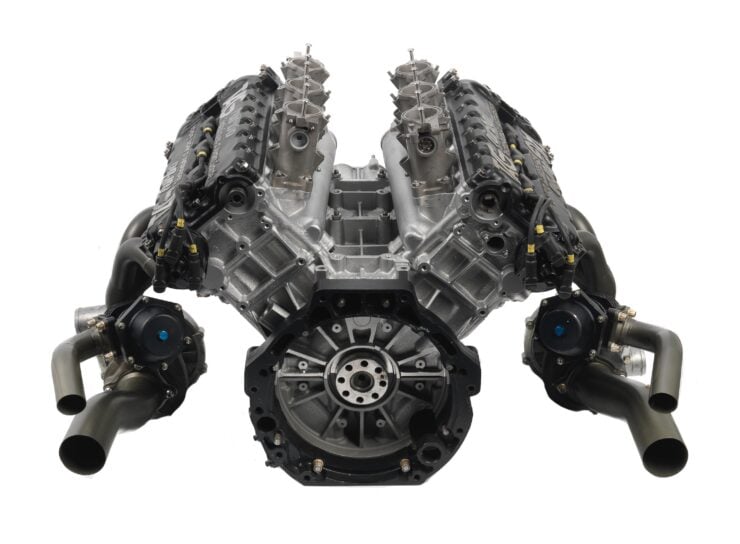
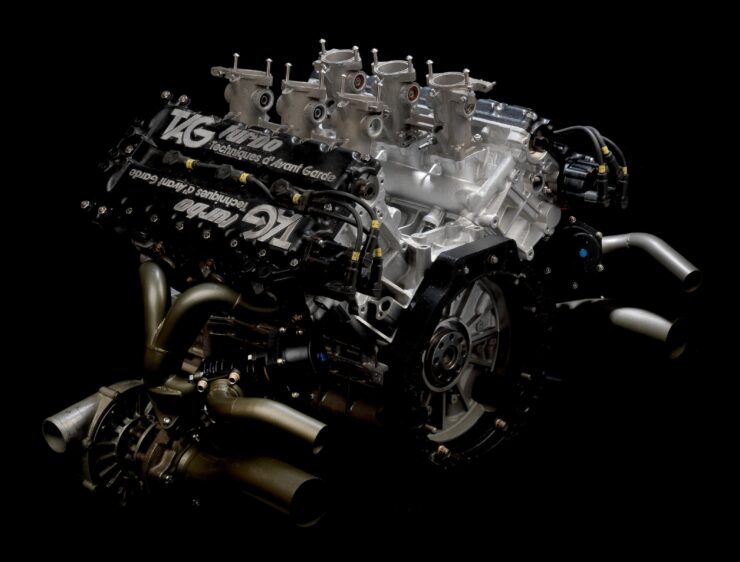
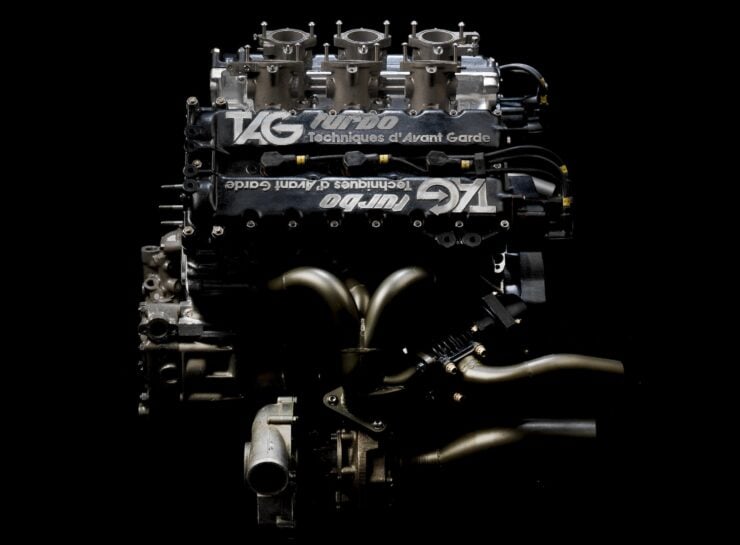
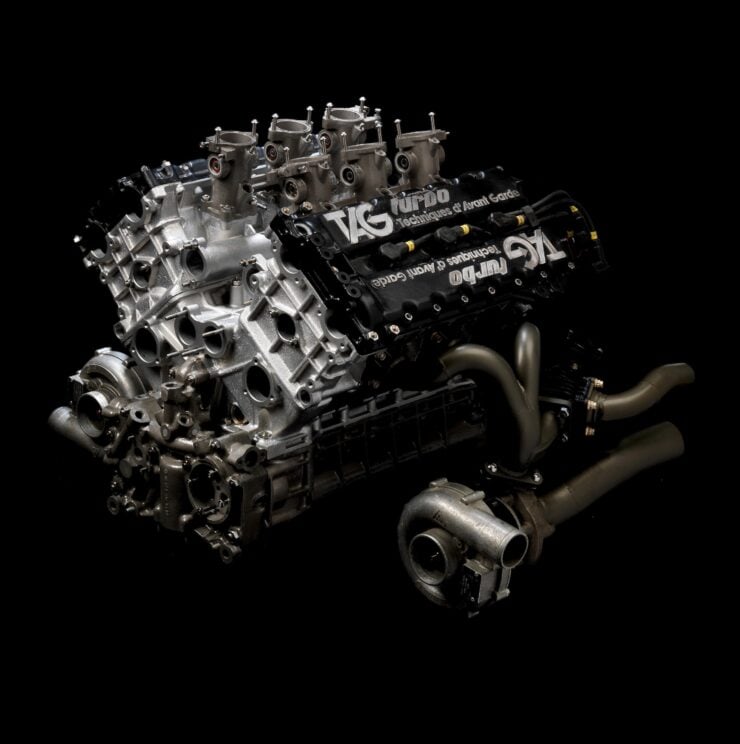
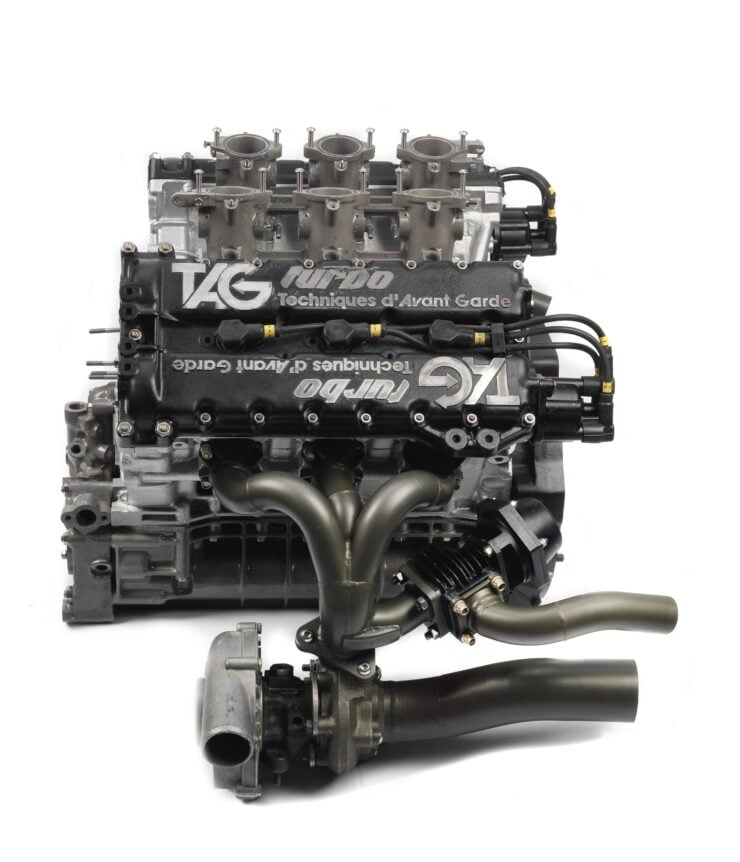
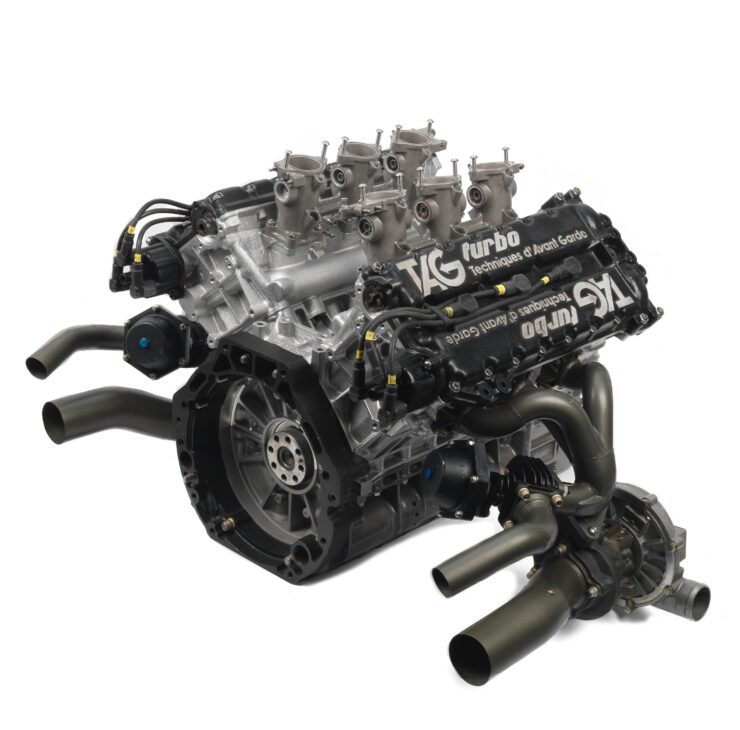
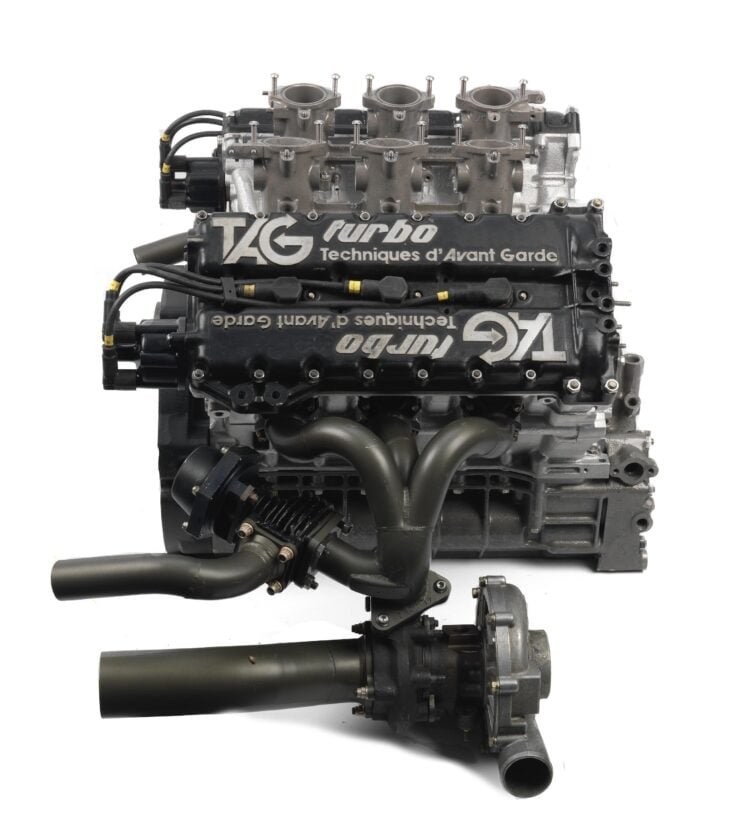
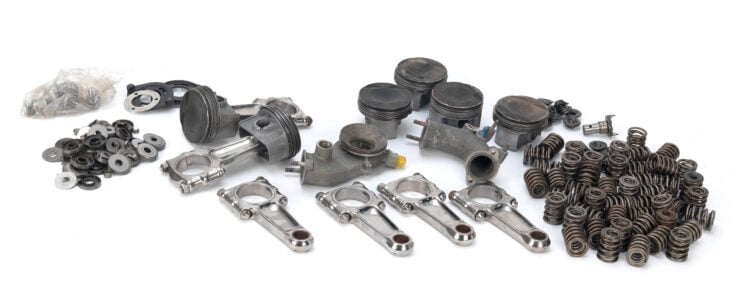
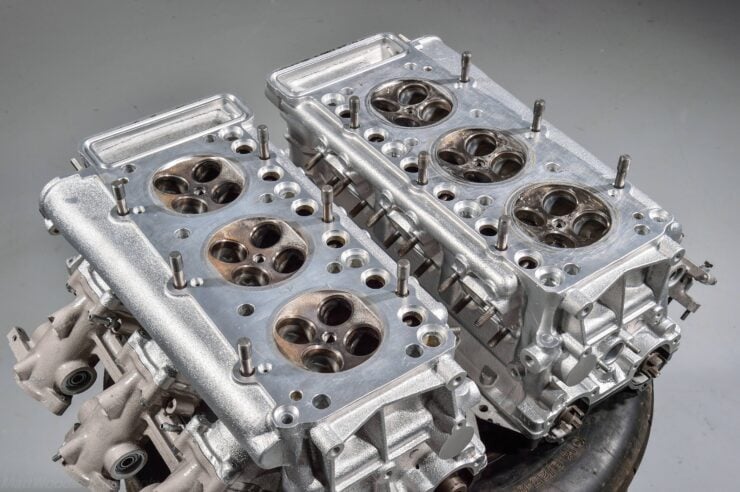
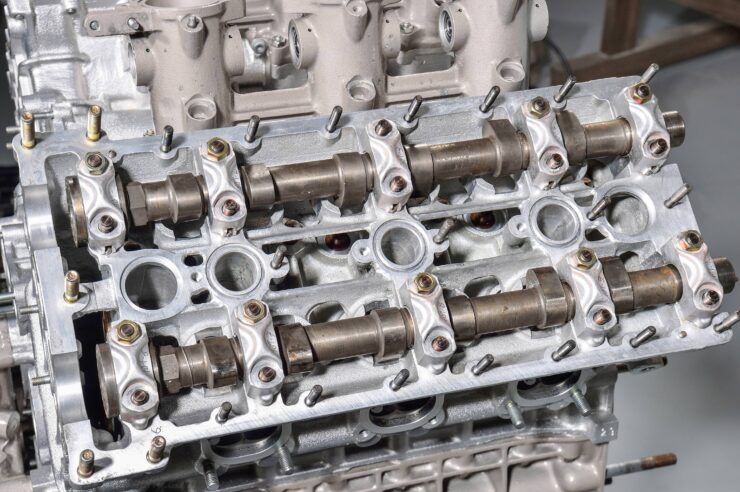
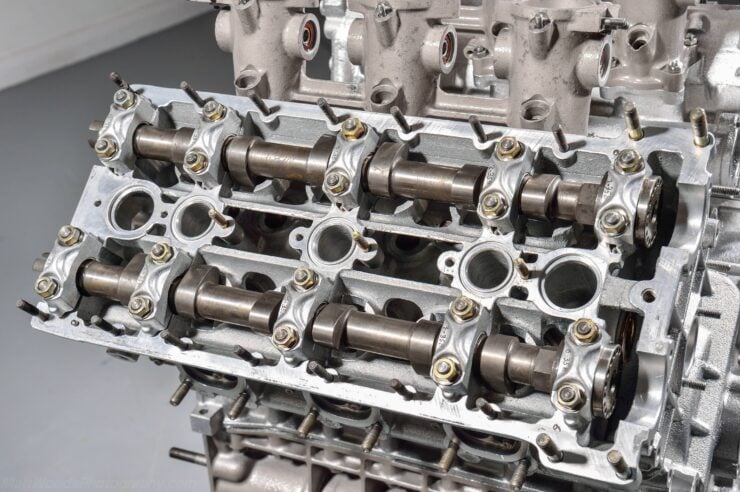
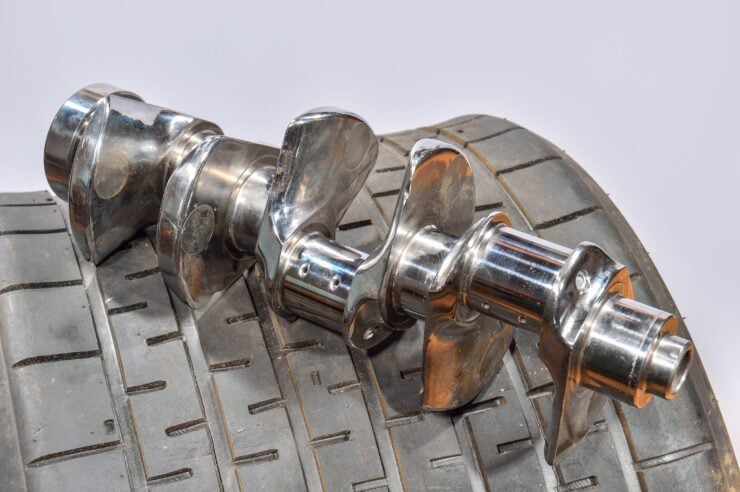



Images courtesy of Bonhams

